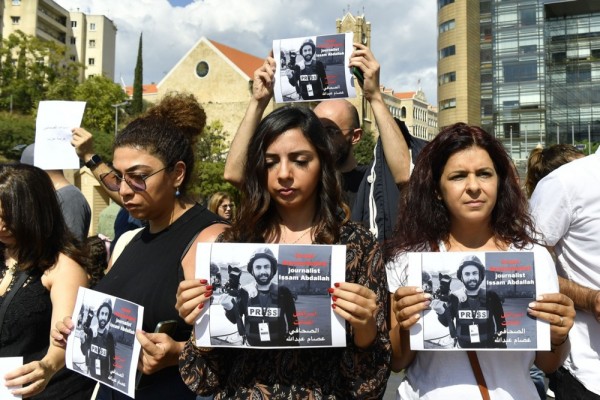An employee of Lebanon’s Al-Akhbar newspaper confirmed to IPI that one of the newspaper’s journalists was killed in clashes between the Israeli and Lebanese armies which erupted Tuesday, shattering several years of relative calm on the tense Israel-Lebanon border.
The Lebanese news site NOW Lebanon named the journalist as Assaf Abu Rahhal.
Arab news reports also said a journalist working for the Lebanese TV outlet Al-Manar – closely affiliated with the militant Lebanese Hizbullah group – was injured in the violence.
IPI Interim Director Alison Bethel McKenzie said: “We are saddened to hear of the death of a journalist in Lebanon during today’s clashes in the south of the country. We would remind all parties that they have a duty to respect the status of civilians, including journalists, as non-combatants. Especially during conflict, journalists have a right to report freely. We call on the concerned parties to investigate the circumstances of the journalist’s death.”
During a month-long war between Hizbullah and Israel in 2006, Lebanese freelance photographer Layal Najib was killed by Israeli shelling.
Several journalists were targeted in a wave of assassinations which swept Lebanon after the killing of former Prime Minister Rafiq Hariri in 2005. Al-Nahar publisher Gebran Tueni was killed in a car bomb attack, as was Al-Nahar columnist Samir Kassir. LBC TV anchor May Chidiac was maimed for life by a bomb placed under the seat of her car. She has since been named an IPI World Press Freedom Hero, joining 59 other Heroes due to be honoured at an event during IPI’s World Congress in Vienna and Bratislava in September. The naming of 60 Heroes marks IPI’s 60th year defending press freedom.
An October 2009 IPI press freedom mission to Lebanon found the media there freer than elsewhere in the Middle East, but nonetheless suffused with excessive political influence.


